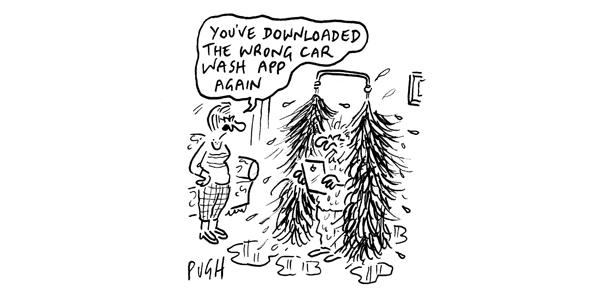The Archbishop of Westminster, Cardinal Vincent Nichols, has welcomed the launch of a new app designed to empower the public to detect signs of modern-day slavery in car wash workers.
The Safe Car Wash App, launched on 4 June, was also backed by the Church of England’s campaign to combat modern slavery, the Clewer Initiative, in conjunction with the National Police Chiefs’ Council, the Local Government Association and the former Independent Anti-Slavery Commissioner.
Cardinal Nichols, in his role as president of the Santa Marta Group against trafficking and modern slavery, described the app as a “very helpful and timely initiative in an area of real exploitation. As we learn to see this example of forced labour and modern slavery in our midst, we will become more aware of this evil scourge in other sectors in our neighbourhood.”
Users open the app, free on Apple and Android devices, while at a car wash to pinpoint the exact GPS location. The app then invites them to answer a series of questions including: Do workers have suitable protective clothing? Are there signs that they are living on the site? Do workers seem fearful? They are invited to look out for car washes where motorists pay less than £6.70, where only the manager receives payment and where no receipt is offered.
If the answers suggest a high possibility of modern slavery, users will be directed to the Modern Slavery Helpline. The anonymous data will also be shared with the National Crime Agency and the Gangmasters and Labour Abuse Authority (GLAA).
The Archbishop of Canterbury, Justin Welby, said that modern slavery is often “perpetrated in our communities in plain sight” and that the new app would “help tackle this scourge which is damaging so many people’s lives”.
Kevin Hyland, former Independent Anti-Slavery Commissioner, said the app “empowers a community to act”.
Estimates suggest that the number of hand car washes in the UK has snowballed from a small number a decade ago, to around 18,000 today across high streets, at the sides of motorways and in abandoned forecourts.
Although many are legitimate businesses, some exploit, force or threaten their workers, making them modern day slaves. To date there has been no reliable data as to the scale of the problem but Nottingham University’s Rights Lab plans to analyse six months’ worth of data collected via the app and will report on its findings in early 2019. Director Professor Zoe Trodd said that analysing data in this way has potential for mapping other vulnerable services such as nail bars.



 Loading ...
Loading ...